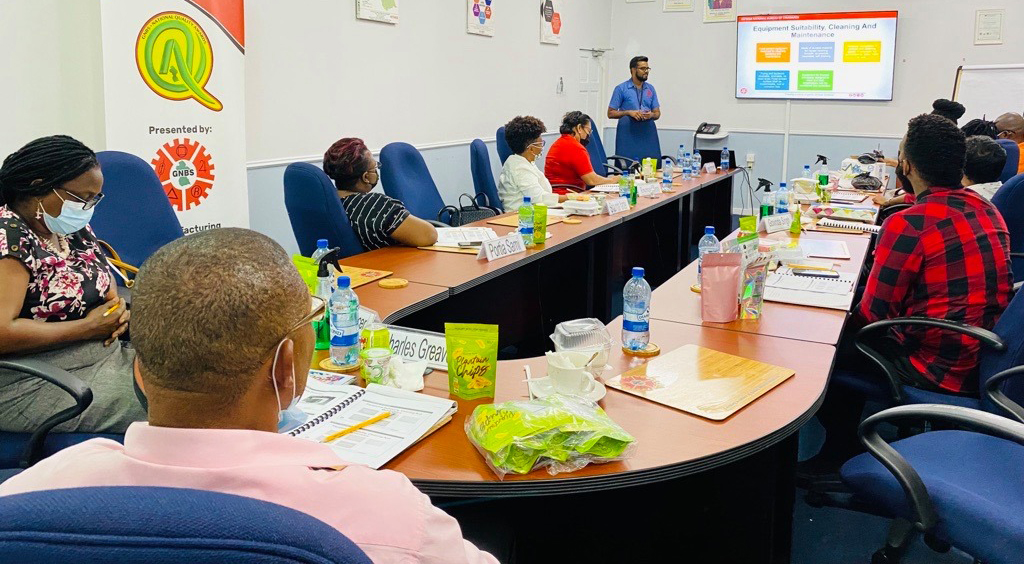With the local agro processing sector being pressed to ‘shift gears’ in order to maximize growing external market opportunities, a collaborative effort involving the Inter-American Institute for Cooperation on Agriculture (IICA), the Small Business Bureau (SBB) and the Guyana National Bureau of Standards (GNBS), on Wednesday, saw representatives of ten (10) agro processing establishments participate in a competence-enhancing exercise designed to help further raise all-round standards in the sector.
The exercise was specifically designed to raise participants’ awareness of key food safety requisites necessary to enhance consumer acceptance of their products in increasingly competitive local, regional and international markets.
A release issued by the GNBS on Wednesday evening explained that the exercise was the first component of a broader initiative that is also targeting the realization of a more effective regime of intra-regional trade in fresh and produced goods.
The initiative comes against the backdrop of an increasing regional clamor for member countries of the Caribbean Community (CARICOM) to begin to look much more to the agricultural and agro processing sectors to meet their food needs in the quest to reduce a regional food import bill believed to be in the region of US$5 billion.
The GNBS release said that the initiative, which brought together “medium and large-scale agri-food producers” was also designed to help enhance local, Agro Processors’ knowledge of trade rules and to enhance their awareness of regional export market opportunities and buyers. Last Wednesday’s training exercise was also concerned with addressing “the food safety prerequisite programmes that are applicable to food produced across the food chain and the benefits of implementing them.”
Noting that food safety requisites form the base or foundation of any food safety management system the GNBS release stated that those requisites include “good agricultural practices, good hygiene practices, good storage practices and good manufacturing practices that ensure safety of all food produced from farm to plate.”
Apart from the collaborative training delivery initiative provided by the named agencies, the participants in last Wednesday’s exercise will benefit from exposure to initiatives designed to support and appreciate regional market opportunities,” The GNBS release said, adding that they will also be “exposed to export strategies and tactics; access to testing for their products; training on the utilization of current technologies and platforms to facilitate trade in Regional Markets; and coaching on other issues of relevance to export oriented businesses.”
Another key objective of the exercise, according to the GNBS statement is to “enhance capacity among agri-food players to understand trade rules and to increase their awareness of regional export market opportunities and buyers.”
Last Wednesday’s exercise marks the start of an envisaged extended initiative that will also allow beneficiaries to become “exposed to export strategies and tactics; access to testing for their products; training on the utilization of current technologies and platforms to facilitate trade in regional markets and coaching on other issues of relevance to export oriented businesses.”






